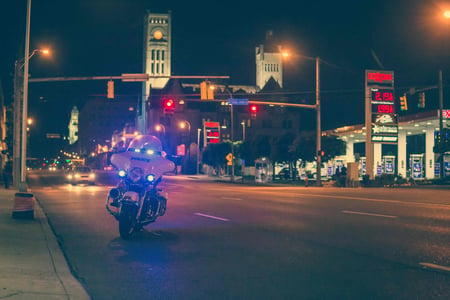In order for a police officer to stop you, he must first have (1) observed you commit a civil motor vehicle infraction (speeding, marked lines violation, etc.); or (2) reasonable suspicion to believe you have committed a crime, you are committing a crime, or you are about to commit a crime.
Generally speaking, if the police cannot cite a civil motor vehicle infraction or establish reasonable suspicion of criminal activity as the basis for the stop, the stop in and of itself is unconstitutional and you have a strong motion to suppress. In the context of sobriety checkpoints, however, the police set up roadblocks and stop all motorists that happen to pass through those roadblocks.
What if you didn’t commit a civil motor vehicle infraction and the police didn’t have reasonable suspicion of criminal activity, how can they stop you? How is that constitutional? How is that just? How is that fair?
---These are all legitimate questions, and ones that to this day, I ask myself. Checkpoints/Roadblocks by their very nature raise considerable constitutional concerns---motorists are randomly and arbitrarily stopped, which is entirely contrary to basic Fourth Amendment principles of law. The courts have recognized that checkpoints/roadblocks raise these constitutionality questions, but have held that they are constitutional nonetheless.
The rational is that any infringement on the constitutional rights of those stopped at a sobriety checkpoint/roadblock is outweighed by the public safety interest (deterring and prosecuting drunk driving) achieved by these checkpoints/roadblocks. That being said, and in recognition of the constitutional concerns, the courts require that the police “strictly comply” with the operational plan established for each individual sobriety checkpoint.
These operational plans are lengthy and intricate and noncompliance can result in the suppression of the checkpoint, and consequently, a dismissal of an OUI charge. When dealing with a sobriety checkpoint case, careful attention must be paid to the smallest of details. In these cases, often times it’s the little things that generate the big results.


